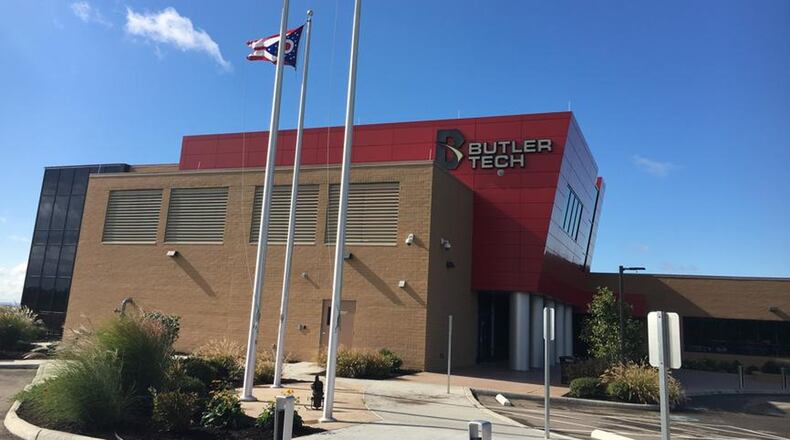The “5th Day Experience” program won’t kick in until early 2020, but some principals at Butler Tech’s campuses throughout Butler County said it’s already getting strong backing from students and staffers.
“Overall they (teachers) were positive,” said Abbie Cook, principal of Butler Tech’s Bioscience Center in West Chester Township.
“And the students are always fantastic to get feedback from and they were a ‘yes.’”
The plan, which would include high school students spending 14 consecutive Fridays out working in local companies starting in February 2020, has also drawn wide praise on social media since the Journal-News was the first to report on it last week.
Butler Tech is the first Ohio career school system to try the experimental calendar and one of the few in the nation to have students learn more about careers by spending an entire school day in the workforce.
Gregory Tyus, who represents Middletown schools on the Butler Tech school board, said the new program’s initial acceptance isn’t surprising. He joined other board members in unanimously approving the plan Tuesday evening
“We are opening so many doors for so many kids. This is about transforming lives,” said Tyus. “We’re doing what everybody else is only talking about,” said Tyus, referring the growing number of studies on the national work-skill gap that has schools scrambling to better prepare students for careers.
Jon Graft, superintendent of Butler Tech, said high school students are already job shadowing, working internships and gaining valuable workforce experience in a variety of after-school and weekend learning co-op programs with Tech’s business partners.
The new plan will formalize and standardize those opportunities and expand them to more than 1,250 teens.
Some students, school officials said, have expressed concerns about transportation to and from their work place learning time on the Fridays away from school.
Details are still to be worked out, but Butler Tech, which enrolls more than 16,500 high school students, already buses students who don’t have their own transportation.
The district also uses buses and a fleet of vans to transport teens to various job programs already offered by Butler Tech’s dozens of business partners in the area.
The new 2019-20 school calendar will include an added week of classes and the elimination of spring break for participating students.
“The beauty about this (new) calendar is we are still requiring all the mandatory days and number of (classroom) hours,” Graft said. “And now we have students talking about what they are going to do on their off day (Fridays). That is what this calendar has already created and that is what is so exciting about this calendar.”
Board member Lynda O’Connor, who also sits on the governing board of Lakota, which is the largest district in the county, said the plan will make career learning more personal for students.
“There is a drive throughout the region toward a more personalized learning approach and Butler Tech is certainly helping to leading the way. If we are training our students to be innovative and ready for the future, we have to do things differently,” O’Connor said.
About the Author
